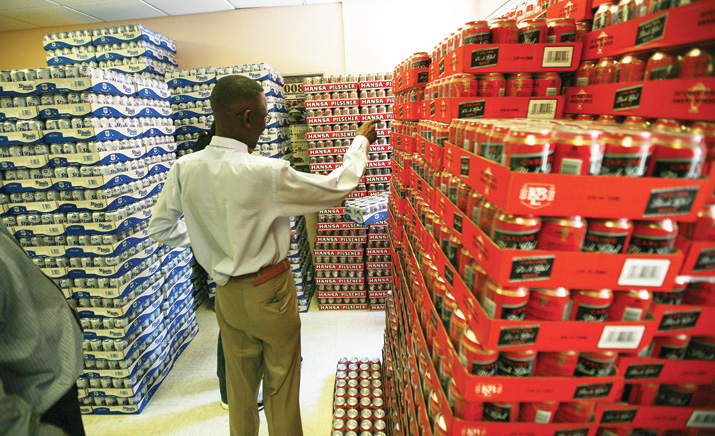- 650 liquor outlets have closed shop
- Profits declined by P880 million
- Minister proposes alcohol sales in general dealers and filling stations
LETLHOGILE MPUANG
The government is reviewing the country`s liquor laws against the background of the terrible effects of the COVID-19 pandemic on the alcohol industry that has registered a revenue decline of more than P800 million, a loss of P40 million in alcohol expiries and closure of over 600 dealerships.
This is the grim picture and potential way forward presented to Parliament by the Minister of Investment, Trade and Industry Peggy Serame, recently about the negative effects of COVID-19 on an industry where significant job losses have also been experienced over the last 12 months.
In the aftermath, the proposed review of the Liquor Act will seek to allow the sale of liquor in supermarkets, filling station kiosks and general dealers, Minister Serame said. “In January 2020, the investment level of the three manufacturing companies stood at a cumulative figure of about P3.6 billion with approximately 710 employees,” she said.
“However, the loss incurred due to restrictions on the alcohol industry led to a decline in revenue amounting to P880 million and the employment level dropped to 520, and those affected were the casual employees. Further, loss from expiries during liquor sale restrictions is worth P40 million.”
The minister was answering a question from the MP for Selebi-Phikwe West, Dithapelo Koorapetse, on the state of Botswana’s alcohol industry.
“Because the restriction on sale of alcohol was done within limited time, it resulted in stockpiling and ultimately expiry of stock,” she noted. “As at March 2020, there were 4 893 licensed liquor outlets with an employment level of 15 910 in Botswana. Further, there were 1 191 restaurants that employed 23 820 people. As a result, one manufacturing company out of the three, being the Big Sip Company, closed down and is currently under liquidation while 650 liquor outlets also closed shop.”
According to Minister Serame, the decision to impose strict restrictions on the alcohol industry was in accordance with advice that the industry posed a high potential risk in the spread of the coronavirus. She told Parliament that liquor outlets were operational for 183 days out of a total of 286 days between the 21 March 2020 and December 2020, which translates into six months.
“My Ministry and other stakeholders have been monitoring compliance of liquor outlets, including patrons to the Liquor Act and health protocols,” she said. “It was disappointing that some liquor traders and patrons continued to violate the laid down liquor regulations. The main concerns are businesses that trade beyond stipulated hours and consumers who fail to observe social distancing and those who consume liquor at un-gazetted areas. Another major concern particularly around the festive holidays, was the failure by some restaurants to control their patrons.”
In the environment of disregard for compliance, a total of 137 offences were recorded across the country, mostly for bars and restaurants operating beyond stipulated trading hours and for failure to adhere to COVID-19 health protocols. “We also realised a high increase in illegal sale of liquor in homesteads, as well as brewing of unauthorised traditional beer that may be detrimental to health.”
PROPOSED REVIEW OF THE LIQUOR ACT
The Ministry of Investment, Trade and Industry is in the process of reviewing the Liquor Act to remove implementation challenges. The proposed review also aims to facilitate continued operation of the liquor industry amid the COVID-19 pandemic and beyond without compromising health protocols.
Some of the proposed amendments include: Removal of the requirement for gazettement. This unnecessarily prolongs turnaround time in acquiring a liquor license.
Consideration of Liquor Regulation 7(1) which deals with distance requirements from a church, a major road or a school. This has proven to be a challenge in some localities, leading to the law being implemented through exemptions.
Improving accessibility of liquor in other outlets such as general dealers, supermarkets, and filling station kiosks.




